Wedgewood-Houston, a creative hub bustling with artists and entrepreneurs, carries a unique charm that sets it apart in Nashville’s tapestry. Amongst its historic factories and emerging art scenes, PNC Law Criminal Defense Attorney offers a beacon of legal clarity. Here in Wedgewood-Houston, we stand as your staunch defenders, ensuring every legal battle meets justice.
About Wedgewood-Houston
Wedgewood-Houston, often abbreviated as WeHo, is a vibrant and evolving neighborhood situated south of downtown Nashville, Tennessee. Nestled between the bustling districts of 12 South and The Gulch, WeHo is known for its eclectic charm and unique blend of old and new.
Historically, the area was predominantly industrial, with factories and warehouses shaping its landscape. Over the years, as the industrial sector moved out, a dynamic creative community moved in. This shift gave rise to a mix of art galleries, studios, and maker spaces. The neighborhood has become particularly renowned for its monthly art crawl, where locals and tourists alike can experience the rich tapestry of visual arts on offer.
Amidst the art spaces, WeHo has also attracted a growing number of local businesses. Coffee shops, restaurants, and boutique stores line its streets, presenting a myriad of culinary and shopping experiences. There’s a palpable sense of community among its business owners and residents, many of whom actively participate in local events and initiatives.
Residentially, Wedgewood-Houston presents a diverse range of living options. From refurbished industrial lofts to modern townhouses, there’s something to suit every preference. Moreover, the neighborhood’s close proximity to downtown Nashville makes it a convenient choice for urban dwellers.
Yet, despite its rapid development and increasing popularity, WeHo still manages to retain a sense of authenticity. The juxtaposition of historical buildings with contemporary structures speaks volumes about the neighborhood’s respect for its past while looking ahead to its future.
Neighborhood History
During the Civil War, the neighborhood played a significant role, housing Fort Negley, a Union stronghold built to protect Nashville. The remnants of this fort still stand today, serving as a reminder of the area’s strategic importance during a tumultuous period in American history.
As the 20th century dawned, the neighborhood began to transition from farmland to a more industrial identity. Railroads and factories started to emerge, providing employment opportunities and shaping the physical and cultural landscape of the area. The presence of industries, particularly those like the May Hosiery Mill, solidified the neighborhood’s position as a hub for manufacturing and blue-collar work.
However, as the decades rolled on and deindustrialization took hold across the U.S., many factories and warehouses in the area were left abandoned. This decline continued until the late 20th century when artists and creative minds began to see potential in the vacant spaces. They transformed these derelict buildings into studios, workshops, and galleries, planting the seeds for the vibrant arts community that the neighborhood is known for today.
In recent years, as Nashville has experienced a broader urban renaissance, WeHo has also witnessed a resurgence. Old buildings have been rejuvenated, and new developments have sprung up, all while maintaining respect for the neighborhood’s storied past. The community’s appreciation for history is evident, with many projects aiming to repurpose and retain the architectural integrity of existing structures rather than tearing them down.
Public Transportation
Wedgewood-Houston, or WeHo as it’s colloquially known, benefits from its close proximity to the heart of Nashville, making public transportation an accessible option for its residents and visitors.
The Nashville Metropolitan Transit Authority (MTA) operates buses that serve the WeHo area, connecting it to various parts of the city. Regular bus routes traverse the main thoroughfares, making it relatively easy for residents and visitors to commute to downtown Nashville, nearby neighborhoods, or even further afield. These buses are typically equipped with modern amenities, and the schedules are generally tailored to cater to the needs of daily commuters, ensuring timely arrivals and departures.
In addition to buses, the neighborhood’s strategic location near major roads and highways makes it a convenient node for other modes of public transit that may be planned or developed in the future. As Nashville continues to grow and urbanize, there’s been a push to enhance and expand its public transportation offerings, which could further benefit neighborhoods like WeHo.
It’s also worth noting that with the neighborhood’s growth in popularity and its development as a hub for arts and culture, pedestrian-friendly initiatives have been introduced. This means that for short trips within the area or to neighboring districts, walking or cycling can be just as efficient as taking public transport.
Rideshare services, like Uber and Lyft, also have a significant presence in the area, offering an alternative for those who prefer on-demand transportation options.
PNC Law: Your Legal Advocate in Wedgewood-Houston
Experience reliable legal guidance in Wedgewood-Houston. Choose PNC Law Criminal Defense Attorney for unwavering support and expertise.
